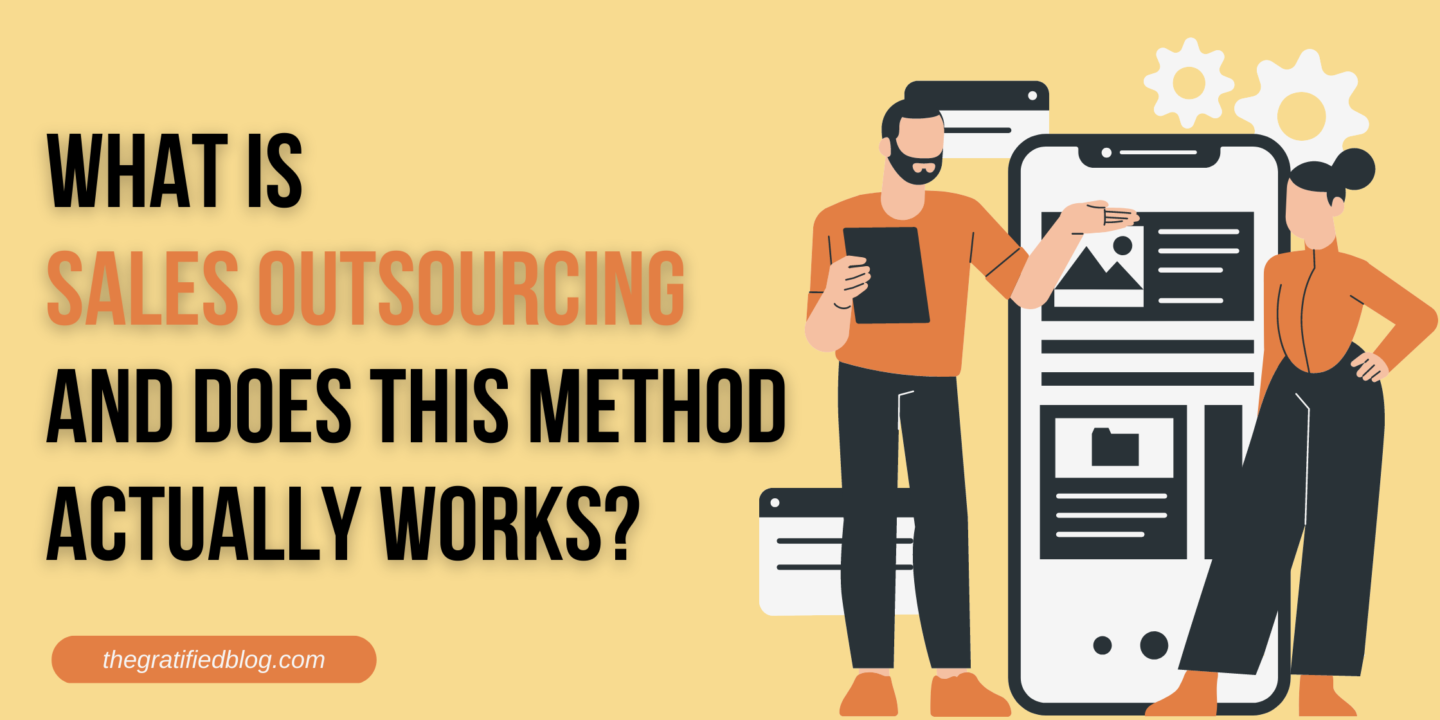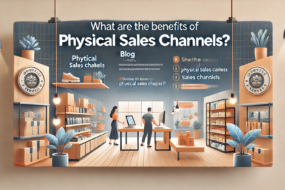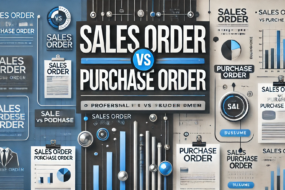
In the current digital marketing landscape, many businesses like yours recognize the benefits of outsourcing to optimize their sales processes and achieve better outcomes. Sales outsourcing can be a highly effective strategy for companies aiming to increase sales, expand their customer base, and maintain competitiveness in today’s dynamic business environment.
Here, we will discuss sales outsourcing, the pros and cons, and some top software today. We will also answer some of the most commonly asked questions about them so that you can make an informed decision about whether or not sales outsourcing is right for your business.
But, before that, let’s understand:
What Is Outsourcing?
Outsourcing is hiring a third-party provider to handle tasks or functions typically done by internal employees. Some functions include sales, marketing, customer service, IT support, and more.
What Is Sales Outsourcing?

Sale outsourcing is hiring a sales team to handle sales-related activities for your business. This can include lead generation, sales prospecting, sales closing, and more. However, By outsourcing sales to a specialized sales team, your business can benefit from their expertise and focus on other essential aspects of running your business.
How Do Sales Outsourcing Work?

Sales outsourcing involves companies partnering with third-party providers to handle their sales activities. There are two main options for sales outsourcing: outsourcing the entire sales department or outsourcing specific aspects of the sales process.
- When outsourcing the entire sales department, the company transfers the responsibility of managing and executing the sales function to the outsourcing provider. That includes lead generation, prospecting, sales calls, negotiations, and closing deals. The outsourcing provider takes over these activities, allowing the company to focus on other core areas of its business.
- Alternatively, companies may choose to outsource specific aspects of the sales process. That could involve outsourcing lead generation, appointment setting, or customer support. In such cases, the outsourcing provider works with the company’s in-house sales team to enhance efficiency and effectiveness in those areas.
Why Do Businesses Consider Sales Outsourcing?
There can be several scenarios to consider. But here are the four most common reasons why it is worth considering:
- Small sales team: Businesses with limited resources often have small sales teams that may need help to handle the volume of sales leads or effectively cover a large market. Sales outsourcing can help augment the existing team by providing additional sales representatives or specialized expertise, enabling the company to handle more sales activities.
- Market competition: In highly competitive industries, it can be challenging for businesses to keep up with competitors who may have larger sales teams or more advanced sales strategies. Sales outsourcing can level the playing field by providing access to experienced sales professionals, cutting-edge sales technologies, and proven sales methodologies, helping businesses stay competitive and capture market share.
- Resource lacking: While a sales team may possess a broad range of skills, specific sales activities may be outside their expertise. For example, lead generation, appointment setting, or sales support functions may require specialized knowledge and dedicated resources. Sales outsourcing companies excel in these areas, providing businesses access to specialized skills and resources that may only be available in their way.
- Tight budget: Hiring and maintaining a high-performing sales team can be costly. Businesses may need help recruiting, training, and retaining top sales talent. Sales outsourcing can be a cost-effective alternative, eliminating the need for extensive recruitment and training processes. By outsourcing sales functions, businesses can access experienced sales professionals flexibly, paying for the services they need without incurring the total costs of a dedicated in-house sales team.
Pros And Cons Of Sales Outsourcing
Well, It isn’t the choice of all companies. Some companies might think it’s a good idea, but some won’t. But here are a few pros and cons of it:
Pros:
- These companies typically have sales teams that are already trained and have the right sales skills, and you want to avoid hiring and firing sales representatives, as it can change things in the company. So you can save time hiring and onboarding sales reps.
- It can help you drive more sales and increase revenue for your business without increasing costs or headcount.
- The pay is often based on the outcomes and sales performance. So you won’t have to pay a base salary or benefits, which can help you save on costs.
- Organizations can focus on other tasks that the sales team doesn’t need, like accounting, marketing, etc.
Cons:
Some potential downsides to sales outsourcing include the following:
- You might be at risk as the third party handles the client relationship.
- There may be a need for more communication or coordination between the sales team from a sales outsourcing provider and your internal sales team, which can negatively impact sales performance.
- Investing your time and effort in building relationships with the outsourcing vendor, sales teams, and sales managers can be invaluable; however, it may require patience.
- The sales performance may only sometimes meet your expectations or standards, which can lead to disappointment.
Now that you know the basics of sales outsourcing, let’s delve into some important factors to consider before hiring a sales outsourcing provider.
5 Things To Ask Before Sales Outsourcing
There are several things you need to consider before sales outsourcing, including:
Their Previous Sales Results

When considering sales outsourcing, it is essential to evaluate the previous sales results and track record of the potential sales outsourcing provider. Requesting information about their previous clients and the outcomes they achieved is a valid approach to assessing their capabilities. Here are a few key points to consider:
- Client portfolio: Ask the sales outsourcing company about the clients they have worked with in the past. Inquire about the industries they have served and the size of the companies they have partnered with. That will help you gauge their experience in your industry and ability to handle clients of similar scale and complexity.
- Goals and achievements: Inquire about their previous clients’ goals and whether they were successfully achieved. Understanding the specific objectives and outcomes that were targeted will give you insights into their ability to deliver results. Ask for specific examples where they exceeded sales targets or contributed to significant revenue growth for their clients.
- Case studies and testimonials: Request case studies or testimonials from their current or past clients. These documents provide detailed accounts of the client’s challenges, the solutions the sales outsourcing provider implemented, and the measurable results achieved. Case studies and testimonials can provide valuable evidence of the provider’s effectiveness in driving sales and delivering tangible outcomes.
- Performance metrics: Inquire about the key performance indicators (KPIs) they used to measure success in their previous engagements. Ask about metrics such as conversion rates, revenue growth, customer acquisition, or sales pipeline progression. Understanding the specific metrics they track and the results they have achieved will give you a clearer picture of their performance capabilities.
Data Security

Data security is indeed a crucial aspect to consider when outsourcing sales. To ensure the protection of your sales data, it is essential to inquire about the security measures and protocols implemented by the sales outsourcing provider. Here are some questions to ask:
- Safeguarding sales data: Ask the provider about their approach to preserving sales data. Inquire about the security measures they have in place to protect sensitive information. That can include physical security measures at their facilities and digital security protocols.
- Use of secure servers and encryption software: Find out if the sales outsourcing provider uses secure servers and encryption software to protect customer information. Secure servers ensure data is stored in a controlled environment with restricted access. Encryption adds an extra layer of protection by encoding the data, making it unreadable to unauthorized individuals.
- Prevention of data theft or loss: Inquire about the specific security measures they have to prevent data theft or loss. That can include access controls, firewalls, intrusion detection systems, regular data backups, and disaster recovery plans. Understanding how they monitor and protect against potential security breaches or unauthorized access is essential.
- Compliance with data protection regulations: Ask the provider if they comply with relevant data protection regulations, such as GDPR (General Data Protection Regulation) or CCPA (California Consumer Privacy Act). Compliance with these regulations ensures that your sales data is handled following legal requirements and that appropriate security and privacy measures are in place.
Additionally, you can request information about any certifications or third-party audits the sales outsourcing provider has obtained to demonstrate their commitment to data security.
How Will Their Team Handle Sales Leads And Sales Opportunities?
Understanding how the sales team of a sales outsourcing provider will handle sales leads and opportunities is crucial for ensuring the effectiveness of their sales efforts. Here are some questions to ask to gain insights into their approach:
- Lead generation processes: Inquire about their processes to identify and acquire sales leads. Ask about their sources, such as cold calling, email marketing campaigns, social media marketing, or targeted advertising. Understanding their lead-generation strategies will help you assess their ability to generate quality leads that align with your target market and customer profiles.
- Lead qualification and nurturing: Ask about their lead qualification process. How do they determine which leads have the highest potential for conversion into sales opportunities? Inquire about their lead nurturing strategies to understand how they cultivate relationships with leads over time to increase the likelihood of conversion. This may involve regular follow-ups, personalized communications, and providing valuable information or resources to prospects.
- Sales closing techniques: Find out about their sales closing techniques. What strategies do they employ to close sales opportunities effectively? Understanding their approach will help you gauge their sales expertise and ability to navigate the sales process, address objections, and secure deals.
- Handling non-converting leads: It is essential to inquire about how the sales team will handle leads that do not convert into immediate sales opportunities. Ask about their strategies for re-engaging or nurturing these leads to convert them in the future. This will help you assess their ability to maximize leads’ value and identify potential missed opportunities.
What Type Of Sales Training And Support Do They Offer?

Ensuring that the sales team of a sales outsourcing provider receives appropriate training and support is crucial for their effectiveness in representing your business and achieving sales success. Here are some key aspects to inquire about:
- Sales training programs: Ask about the sales training programs provided to their sales team. Inquire about the content, duration, and frequency of the training sessions. Find out if the training programs cover essential sales skills, product knowledge, objection handling, negotiation techniques, and closing strategies. Understanding the depth and quality of the training programs will help you assess the proficiency and capabilities of the sales team.
- Onboarding process: Inquire about the onboarding process for new sales representatives. A well-defined onboarding process ensures that new hires quickly become familiar with your products or services, sales methodologies, and organizational values. Ask about the duration of the onboarding process and the support provided during this crucial period to facilitate a smooth transition for new sales team members.
- Sales coaching and support: Find out if the sales outsourcing provider offers ongoing sales coaching and support for their team. Sales coaching can help refine sales skills, address specific challenges, and guide continuous improvement. Ask how often coaching sessions occur and how feedback is provided to sales representatives. That will help ensure that the sales team receives regular support to enhance their performance.
- Sales tools and technologies: Inquire about the sales team’s tools and technologies. Practical sales tools can streamline processes, enhance productivity, and enable better sales performance. Ask about their CRM (Customer Relationship Management) system, sales automation tools, or other software supporting their sales efforts. Understanding the tools and technologies in place will help you assess their ability to manage and track sales activities efficiently.
How Will Sales Performance Be?
To evaluate the sales team’s effectiveness and track sales performance, it is essential to understand the specific sales metrics and key performance indicators (KPIs) used. Here are some key points to inquire about:
- Sales reporting: Ask about the specific information in the sales reports that will be provided to you. That can include details on sales activities, lead generation, conversion rates, revenue generated, pipeline progression, and any other relevant metrics. Understanding the content and frequency of the sales reports will give you visibility into the sales team’s performance and progress.
- Sales KPIs: Inquire about the specific sales KPIs that will be tracked to measure performance. Joint sales KPIs include conversion rate, average deal size, sales cycle length, customer acquisition cost, win rate, and revenue growth. Discuss with the sales outsourcing provider which KPIs align with your business goals and objectives.
- Handling sales data: Ask how the outsourcing provider handles sales data to measure sales performance. Inquire about their data collection, analysis, and reporting processes. It is essential to understand if they use a CRM system or other tools to track and manage sales data accurately. Additionally, discuss how frequently the data is updated and if any data validation or quality control measures are in place.
Few Common Sales Outsourcing Software
Below is the top software that you can use for outsourcing sales:
It’s lead generation and sales software that helps automate sales processes, sales forecasting, and sales pipeline management.
Certain features are:
- Qualifying Natural Leads
- Tracking sales emails and sales calls
- Integrating sales data with third-party platforms
It’s a revenue sales software that allows real-time sales engagement and customer service and helps companies grow revenue and increase the lifetime value of customers.
Some of its key features include:
- AI chatbot
- Target account engagement
How Much Does Sales Outsourcing Cost Me?
Well, there is no single answer to this question, as the cost of sales outsourcing will depend on several different factors, such as:
- The size and scope of your sales operations
- The type and complexity of sales software required
- Whether you need sales training or sales coaching for sales reps, And many other factors.
To better understand the cost, it’s best to speak with sales outsourcing providers directly and request a detailed quote.
Final Thoughts
Now that you know what to consider when outsourcing sales, it is vital to research and find a sales team that can help you meet your sales goals. Once you find the right sales outsourcing provider, you can benefit from it.
If you have questions about sales outsourcing, please comment in the comment section. We will be happy to answer you.
Thanks for reading 🙂








No Comments